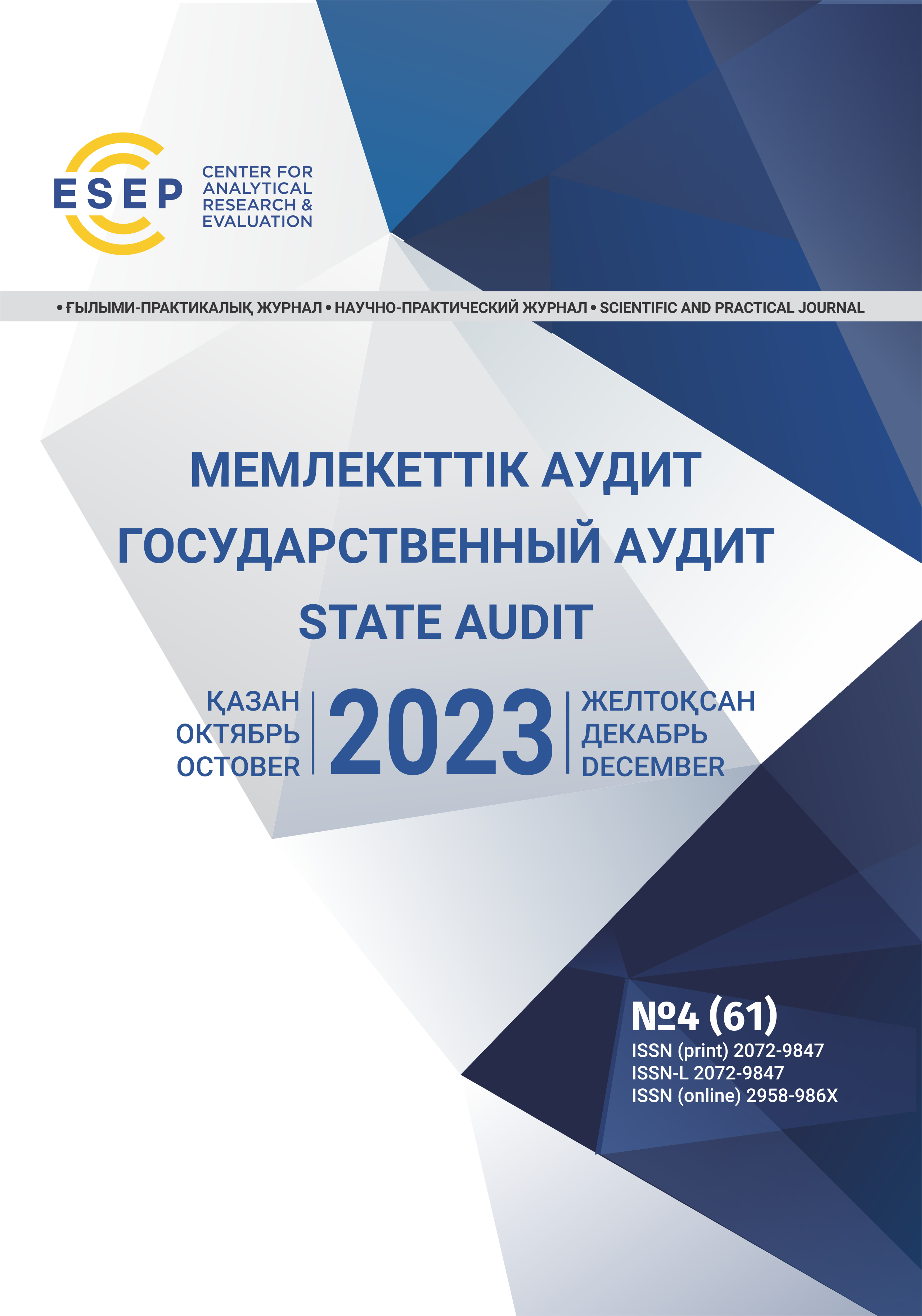Abstract
The paper examines the impact of digital technologies on the organisation of performance audits of government programmes. Digital technologies provide ample opportunities for transforming public administration, with each new stage of their development. The magnitude of changes associated with the transition to digital government has prompted many to think and think about «digital era public administration» as a core concept in public administration, evolving largely in a digital transformation.
The purpose of the study is to examine new digital trends and the impact of digital technology on the organisation of performance audits of government programmes.
Using general scientific methods of knowledge (analysis, synthesis, induction, deduction, method of comparison), the impact of digital technologies on the organisation of the audit of the effectiveness of the implementation of state programmes is considered.
In the course of the study, the authors propose the use of «breakthrough» digital technologies that facilitate the implementation of results-based management principles, which will save budgetary resources, increase efficiency in their use, and broaden the list of strategic objectives pursued by the public authorities.
The study determined that the introduction of digital technology could contribute to a significant reduction in the cost of maintaining apparatuses. With the active deployment of artificial intelligence and automated decision-making technologies, governments could expect between and 30 percent time savings within five to seven years. The results of the analysis show that the active use of digital technologies implies the expansion of methods for analysing and evaluating the implementation of government programmes, including as part of performance and efficiency audits of their implementation.
It is concluded that the application of digital technologies can be an «engine» for further implementation of public administration by results. To this end, the development of new government information systems must consider the benefits of ‘breakthrough’ digital technologies as much as possible.

